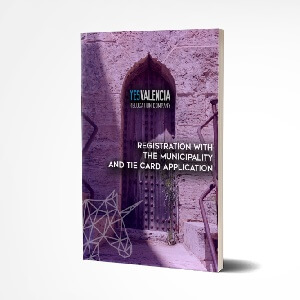 From arts to architecture, from beaches to fiestas, Spain offers a fascinating experience for everyone. With tourism, textile, and manufacturing industries flourishing in Spain, this country provides numerous employment opportunities for locals as well as foreigners. Whether you live in the busy cities of Spain or the peaceful coastal areas, this guide will provide expert advice on moving to Spain so that you can make your move as smooth as possible. This guide will cover everything including the climate, accommodation, emergency situations, and much more so that you are ready to start your Spanish adventure. Additionally, if you are already seduced by Spain, our guide on buying a property in Spain will get you on the right track!
From arts to architecture, from beaches to fiestas, Spain offers a fascinating experience for everyone. With tourism, textile, and manufacturing industries flourishing in Spain, this country provides numerous employment opportunities for locals as well as foreigners. Whether you live in the busy cities of Spain or the peaceful coastal areas, this guide will provide expert advice on moving to Spain so that you can make your move as smooth as possible. This guide will cover everything including the climate, accommodation, emergency situations, and much more so that you are ready to start your Spanish adventure. Additionally, if you are already seduced by Spain, our guide on buying a property in Spain will get you on the right track!
Moving to Spain: Getting Started
Climate and Weather
Before moving to Spain, you must know that due to its vast size, Spain can be broken down into three climatic regions: Mediterranean, maritime, and continental climates.
The majority of Spain experiences rainy, cool winters and hot, dry summers. The heaviest rainfall is recorded during spring and autumn, transitioning into wet and cold winters. As you move closer to the centre of Spain, the weather becomes colder in winter.
Depending on which part of the country you are living in, you should bring light and medium articles of clothing and a few thick ones if you are residing in the central Spain or around the mountains.
Visas
After securing a job, you need to make sure you have the correct work permits and visas before moving to Spain. Some people do not require a work permit, which is dependent on your home country or employment position.
Once you get a job in Spain, you apply for a work permit. This step has to be completed with the help of your employer; he needs to submit an application for a work permit on your behalf. You will then receive a copy of the stamped form, which you need to submit to the Spanish embassy or consulate in your country. The application is then further processed by your labour office, and the process of work or residence visa begins.
 Accommodation
Accommodation
Spain offers a great variety of housing options at affordable prices, including town houses, villas, and apartment complexes.
In cities, apartment complexes are very popular, offering a unique lifestyle to foreign workers. One thing to keep in mind when renting an apartment in Spain is that you must obey the rules of your landlord and are responsible for paying management/building/maintenance fee on time.
Moving away from the cities, you will find town houses surrounding the suburbs, which are larger than studios. However, if you prefer quiet and big houses, villas are the perfect option for you. They are situated in secluded areas, giving you a peaceful atmosphere.
Schools
The education system in Spain is divided into 5 levels: nursery, primary, secondary, voluntary secondary, and optional college or university.
Children between the ages of 6 and 12 attend primary school. They are then promoted to the secondary section, which they complete at the age of 16 and are presented with a certificate to mark their completion. They then have the choice to continue their secondary vocational education further or directly graduate from a reputable university.
 Culture
Culture
Language
Spanish (Castilian) is the official language of Spain, but other regional languages are spoken too including Catalan, Galego, Euskera, and English.
As Spanish is the primary business language in the country, one must have basic knowledge of it to conduct business efficiently.
Holidays
Every region in Spain has a different set of national holidays, but the ones that are celebrated and recognized throughout Spain are:
- New Year
- Epiphany
- Good Friday
- Labor Day
- Assumption Day
- Hispanic Day
- All Saints’ Day
- Constitution Day
- Immaculate Conception Day
- Christmas Day
On these holidays, stores and banks are closed throughout the country.
 Health Care
Health Care
Reputable hospitals in both the private and government sector are spread throughout the country. Costa del Sol, a famous location for foreigners, has one of the best hospitals in Spain. The healthcare system is great with minimal waiting time for treatment.
Private Medical Insurance
It isn’t necessary to have a private health insurance, but when working abroad, it is best to set up a plan. When moving to Spain, you should know that if you want to register for health insurance, you first need to register for a social security ID. It is beneficial for you to enrol for a health insurance or else visiting a hospital without it will cost you a lot of money.
Emergencies
In the case of an emergency, all you need to do is dial 112 to talk to the Spanish Emergency Services. This emergency number is available 24/7 for either medical emergency, reporting a crime or assistance with fire.
If you need to reach the hospital immediately and do not have time to call the ambulance, then you can stop a taxi. Taxis are easily available in Spain and are obliged by the law to take patients with them in the case of medical emergency.
 Finances
Finances
Currency
The official currency of Spain is euro. For those coming from outside of Europe, currency notes can be found in denominations of 5, 10, 20, 50, 100, 200 and 500 euros. Also, the currency includes coins from 1 cents to 2 euros.
Cost of Living
Although the unemployment rate of the country is very high at the moment, moving to Spain for many is still attractive option, as the cost of living is quite reasonable. Housing, food and leisure activities are available at affordable rates with prices varying depending on the location. Local grocery stores provide everyday items at relatively low prices, making living easier. Transportation is easily available and affordable. In short, living in Spain is possible on a reasonable budget.
Banking
Spain offers various types of banks depending on the kind of account you need to open. If you want a current account for everyday use, then those banks are known as ‘bancos.’ If you want to open a savings account, then those banks that provide those facilities are known as ‘cajas de ahorros.’
One thing to keep in mind is that opening an account in Spain not always is free. Plus, you need to be above 18 years old to open a bank account.





2 Responses
Hello, I am moving to Valencia in about a month (don’t worry– I already have a job!) and must say I find all the information you post incredibly helpful. Keep it up! Thanks!
Hey, we don´t worry, you are coming to Valencia, you´ll be alright! 🙂